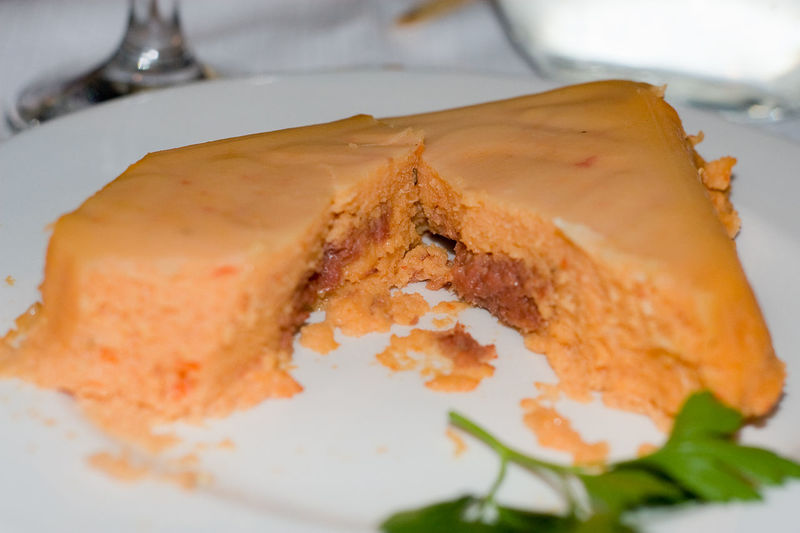Yoruba Wedding
Yoruba weddings combine ancient traditions with religious and civil ceremonies, starting with the groom's search for a bride through intermediaries and culminating in a formal engagement where both families exchange letters and gifts, including a dowry. The wedding day features traditional attire, ceremonial prayers, the exchange of rings, and a reception with traditional dishes like moin moin, managed by a master of ceremonies and highlighted by the cutting of the wedding cake provided by the bride.
Yoruba Wedding
Yoruba people mainly live in the southwest of Nigeria. There are Yoruba communities in Benin, Ghana, Toga and Ivory Coast. There are both Christian and Muslim Yoruba people. Yoruba weddings today represent a combination of ancient traditions, the religious ceremony and the ceremony held in the state office.
The man ready of the wedding searches for her bride on public places, events like for example markets. This is known as ("ifojusode"). He can also try to find the woman of his life through his friends or female siblings.
When a man finds someone he finds suitable he does not approach her directly. He asks some people close to her to check if she is interested. These people are called "alarena". Her positive answer means the start of courtship. During this period both families check the other one.
Two families are formally introduced when the groom-to-be, his father and several family members visit the bride-to-be and her family. This is called "idana". It is a low key affair. Still some presents are brought.
A woman managing the engagement from the bride's side is the "alaga ijoko" (master of ceremony). There are professionals doing this job. But sometimes a member of the bride's family can be "alaga ijoko" too.
The engagement also includes a woman called "alaga iduro". She accompanies the groom when he proposes his bride. She can be a hired professional or a family member.
A proposal actually includes ceremonial reading of two letters. A special letter is first read by the woman from the groom's family. After that a bride's family responses with another letter read by one of its members.
The groom's family brings some presents to the bride's family. The most common objects that are brought are kola nut, rice, sugar, yam, honey, jewelery, clothes etc. Christians also bring the Bible. Muslims bring Quran.
A dowry ("owo ori") or so called bride's price is given by the groom and his family. It is generally determined by the bride's family. But it is negotiable. This amount of money is not the only one paid by the groom. There are quite many "fees" that exist. Let's mention few examples. Both father and mother in law get money to give their consent. All male and female children in the bride's family also get some money.
The Yoruba bride wears the "buba" (top) and "iro" (piece of cloth tied around her vaist). She wears various golden jewelery. On her head she has a head wrap known as the "gele". The colour of the clothes bride is wearing is often the same as those of that worn by the groom. But it can also be a choice of her family.
The groom is dressed in the "agbada". It is a traditional garment made of two layers of cloth. He wears a hat called "fila". During a proposal a bride sometimes put this hat on groom's head. With this act she accepts his proposal.
On the wedding day groom and his friends first lay down on the ground towards the bride's parents and family members. They pray for the groom. He is now officially excepted.
The bride and her friends arrive next. She kneels in front of her parents who say a prayer and then bless her. After that she moves towards the groom's family. They pray for each other. The rings exchange is held after that.

The wedding reception is held in the rented hall or in the open air. Nowadays families may agree on renting a caterer. Traditional dishes like for example "moin moin" (steamed beans), "amala" (yam extract) and "fufu" are served.
The wedding reception is managed by yet another master of the ceremony. This person can be either male or female. It is interesting to mention that it the bride who has to provide the wedding cake ("akara oyinbo"). The cake is cut by the newlyweds in a special ceremony after their first dance.
References
Yoruba people
http://en.wikipedia.org/wiki/Yoruba_people
The Yoruba Traditional Wedding-The Yoruba Traditional Marriage
Ceremony
http://tony55.hubpages.com/hub/The-Yoruba-traditional-Wedding-The-Yoruba-traditional-marriage-ceremony
Oke Efagene, How It's Done In Yoruba Land
http://pulse.ng/weddings/traditional-marriage-rites-how-its-done-in-yoruba-land-id3170543.html
Eight Step Guide to A Yoruba Traditional Wedding
http://www.sugarweddings.com/content/eight-step-guide-yoruba-traditional-wedding
Marriage
http://yorupedia.com/subjects/yoruba-family/marriage/
Yoruba Traditional Marriage Ceremony: A Step by Step Account
http://yorubaculturalinstitute.org/main/yoruba-traditional-marriage-ceremony-step-by-step-account-of-events/
Image(s)
Moin moin (photo by Rka11111)
Creative Commons - File:Yoruba-Dancers-931x598.jpg